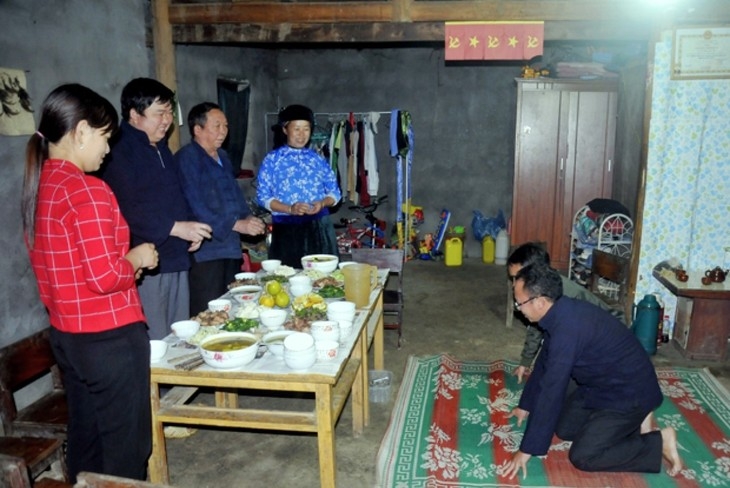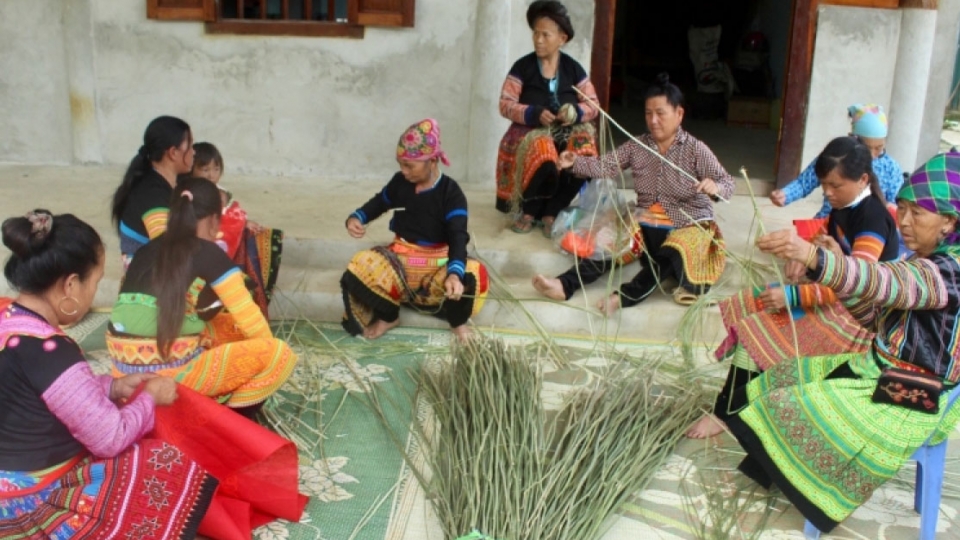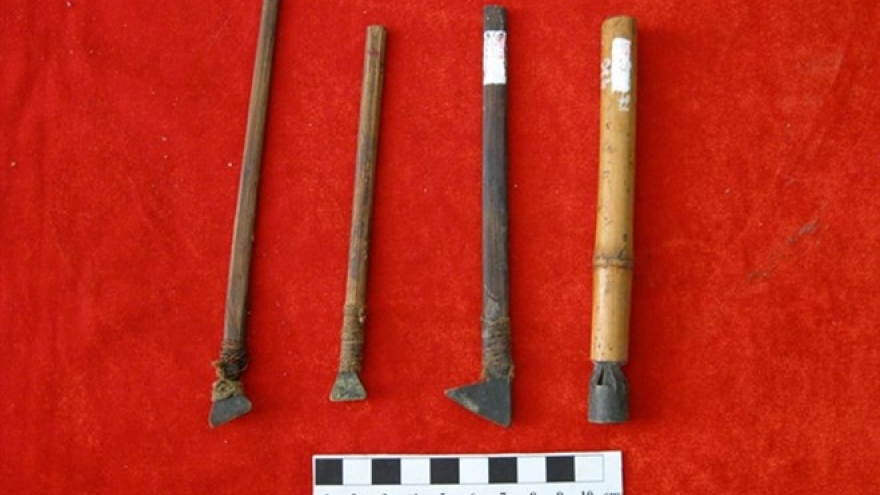Naming ritual of the Mong ethnic minority
VOV.VN - Dong Van district, Ha Giang province, is home to 17 ethnic groups, with Mong people accounting for 80% of the population. The Mong have preserved customs and traditions passed down through many generations, and one tradition is their baby-naming ceremony.

Whenever a Mong couple has a child, they must hold a naming ceremony. After selecting an auspicious date and time, the family invites both maternal and parental relatives to attend, according to Sung Mi Xay, a resident of Sung Trai commune, Dong Van district.
“Three days after its birth, the family performs a soul-calling ritual to welcome the newborn and give it a name. The man who conducts the ceremony is usually the head of the clan or a senior, respected person with a profound knowledge of traditions,” says Xay.
The naming ceremony begins at dawn with a ritual to report the event to the household spirits. The worship offerings vary, depending on the family's financial circumstances.
“The soul-calling offerings usually include a bowl of rice, an egg, an incense stick, and a rooster for a boy or a hen for a girl. The family places all the offerings at the main entrance and begins the soul-calling chant: Today is an auspicious day, the blessed hour has arrived. We call you to return home. If you are at the intersections of nine paths, come back quickly to your parents, your family, your ancestors, and your kin. The soul returns, returns, returns,” explains Xay.
In the old days, she says, the Mong in Dong Van used to name their newborn after an animal of the zodiac.
The baby-naming ceremony conveys the parents’ wish for their child to grow up successful, peaceful, and fortunate. In Mong culture, names are assigned according to birth order, especially for boys. For example, Tua is given to the eldest son, Lu to the second, Sang to the third, Su to the fourth, and Cho is usually reserved for the youngest in the family. Naming based on the 12 zodiac animals considers the child’s birth hour, month, and year.
For girls, names of flowers are commonly chosen – for instance, Pa or Pang means ‘a beautiful flower.’ The Mong sometimes will name their child after a familiar object, such as Van – a bamboo tray, Co – a papoose, or Dua – a comb. If a newborn becomes ill, the parents will ask the shaman to give it a suitable name.
In addition to naming newborns, the Mong people in Dong Van district hold a ceremony to give a middle name to a father when he and his wife have their first child. The middle name should be agreed to by both sides of the family as it must not be the same as that of any male relative within the family lineage.
Before the ceremony, the new father prepares an offering tray consisting of a chicken and a bottle of liquor, placing it beneath the ancestral altar. He asks for permission from the ancestors and both sides of the family to take a new name.
“I hold a ceremony and prepare a pig for a party attended by all our relatives. We keep a ham for our family and give one to my in-laws when we inform them of my middle name. Changing one’s name is a major event,” says Ly Mi Po, a resident of Lung Phin commune.
The middle name ceremony varies by family. It may be conducted alongside the naming ceremony for the firstborn child or postponed for several months or even years. The Mong believe that on reaching adulthood, a man must undergo a renaming to affirm his status as a mature, stable, and respected person in the community. Ly Mi Po says the husband’s middle name is then also used by his wife.
“The significance of the middle name is that, as a person grows older and has children, the middle name is used for worship. After your death, only your middle name is used in rituals, not your newborn name. For example, a man whose name is Ly Sinh Po will be called Sinh, and his wife Mrs. Sinh instead of Mr. and Mrs. Po. The middle name is used for worship,” Po shares.
A man is given a middle name only after he marries and has a child. The middle name must have a meaning that reflects a wish for prosperity, abundance, and wealth for the owner, Xay says.
“For example, the middle name Va means sufficiency and warmth, while No Chu means career advancement, expressing a hope for high social position as an official or general. The name Nhia signifies fortune and a lifetime of prosperity.”
After the ritual, everyone congratulates the new father, who from now on is called by his middle name.



